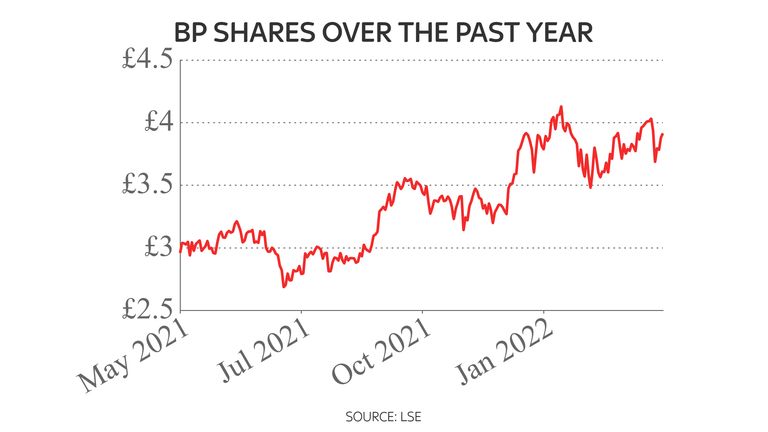BP slumps to $20.4bn loss as it books cost of Russia exit but oil and gas profits soar
BP has reported a loss of $20.4bn (£16.3bn) for the first quarter of the year but faced a renewed backlash over gushing profits from its oil and gas operations.
The company reported a net profit of $6.25bn for the January-March period – its highest in over a decade – thanks to strong oil and gas prices that had already proved lucrative before Vladimir Putin’s invasion of Ukraine.
BP’s bottom line loss was driven by a $24bn non-cash writedown of its 19.75% stake in oil giant Rosneft and two other joint ventures following the company’s decision to exit Russia in February.
However, the underlying profit figure prompted further demands of the government to introduce a windfall tax on energy profits – so far rejected by ministers on the grounds such a move would harm investment in the country’s greener future.
British-based BP said it was making a greater commitment to domestic energy security through a £18bn investment over the next eight years, which would include money for North Sea oil and gas – operations that would generate £1bn in taxes for the UK Treasury this year alone.
But it said that investment would also include commitments to drive down operational emissions as part of its transition to battle climate change under its integrated energy company (IEC) net zero ambition.
The investment would include cash for more wind power and electric car charging points, the company said.
Chief executive Bernard Looney said: “We’re backing Britain”.
He told investors: “In a quarter dominated by the tragic events in Ukraine and volatility in energy markets, BP’s focus has been on supplying the reliable energy our customers need.
“Our decision in February to exit our shareholding in Rosneft resulted in the material non-cash charges and headline loss we reported today.
“But it has not changed our strategy, our financial frame, or our expectations for shareholder distributions.
“Importantly BP continues to perform and step-by-step we are making progress executing our IEC strategy – producing resilient hydrocarbons to provide energy security while investing with discipline in the energy transition.”
BP is keen to promote its role in driving energy security as the industry continues to face demands from opposition parties in Westminster for a windfall tax.
BP’s underlying earnings have been boosted by natural gas costs hitting record levels.
It has also benefited from the highest oil prices for 14 years though values for both have fluctuated wildly since Russian tanks first rolled in to Ukraine at the end of February.
Its net profit figure of $6.25bn compared to the $4.1bn achieved in the previous quarter.
The company said it would reward shareholders by maintaining its dividend at 5.46 cents per share and boost its share buyback programme to $1.5bn a quarter.
The stock – 20% up in the year to date – rose by more than 3% at the open.
The TUC was among organisations to accuse the company of rewarding shareholders at a time when it was profiting from the war in Ukraine.
Its general secretary, Frances O’Grady, said: “At a time when households across Britain are being hammered by soaring bills and prices these profits are obscene.
“The government must stop making excuses and impose a windfall tax on oil and gas companies.
“The money raised should bring down costs for struggling families.”
Business secretary Kwasi Kwarteng said of BP’s update: “BP’s £18bn investment into our energy system this decade is welcome.
“It is right they are reinvesting profits back into the UK. In return for more North Sea production, I want companies to accelerate investment in clean, home-grown energy to create jobs in new industries.”
Susannah Streeter, senior investment and markets analyst at Hargreaves Lansdown, said in reaction: “The company has been raking in cash as the supply squeeze on oil markets has intensified.
“The war and the high geopolitical tensions has brought about a surge in the oil price which is up 40% since the start of the year, spiking in the first weeks of the war at $139.
With growing expectation that the European Union will slap a ban on Russian crude exports at the end of the year the price is set to stay elevated, which will help BP recoup the cost of its expensive exit.
“The further $2.5 billion share buy-back announced underlines the company’s confidence that the direction of travel will be accompanied by higher crude prices given more of the world is set to shun Russian oil.
“Although there will be inevitably be questions raised about whether more revenues should be used to accelerate BP’s ongoing green transition rather than boosting shareholder returns.”



